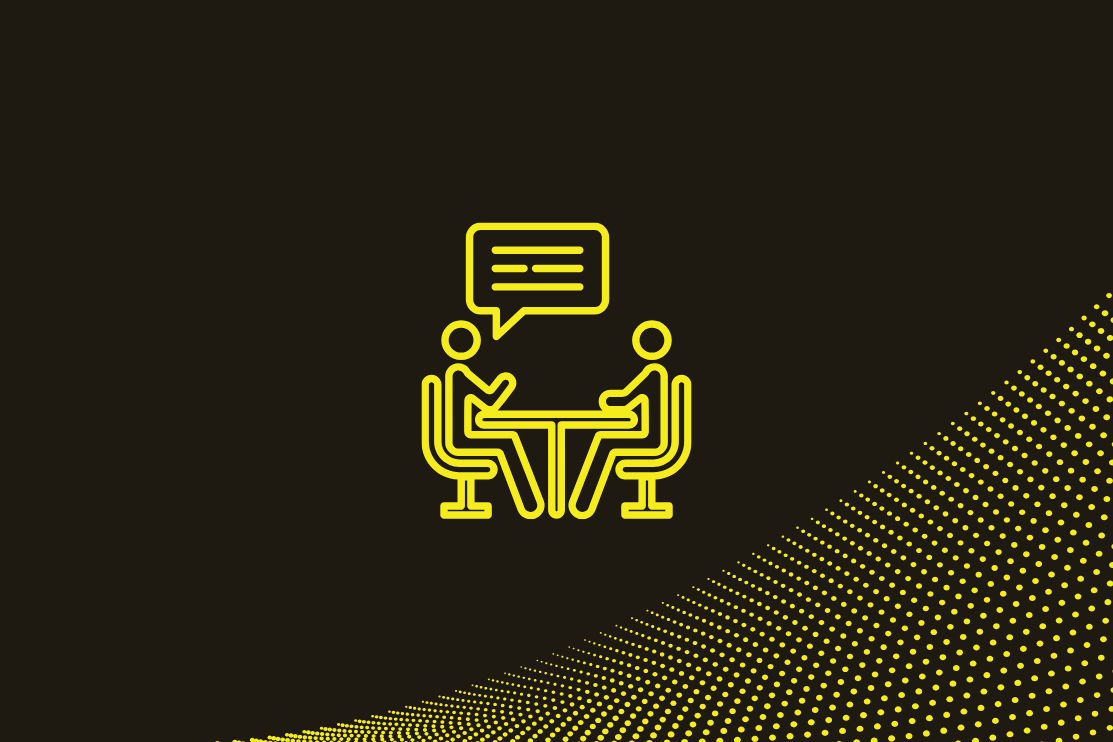Activities to Help Educators Rest, Relax, and Recharge While Away from School
Activities to Help Educators Rest, Relax, and Recharge While Away from School
Activities to Help Educators Rest, Relax, and Recharge While Away from School
Activities to Help Educators Rest, Relax, and Recharge While Away from School
Activities to Help Educators Rest, Relax, and Recharge While Away from School
Activities to Help Educators Rest, Relax, and Recharge While Away from School
Don't miss our breakout sessions!
Book time with our team on-site!
Our team is excited to meet you. Book a time that works best.


As the first half of the school year draws to a close, counselors, educators, and all who work with students are absolutely exhausted. This school year–that was finally supposed to feel “normal”--has seen the alarm about pandemic-related learning loss continue to dominate district policies and practices. During this time, educators have been asked to expedite progress in order to make up for the three years of disrupted learning in a single school year. Counselors have been pulled in to provide unprecedented levels of support for students and families struggling to recover from the past three years. Politicians and community members, many of whom do not have experience working in schools or with students, have loudly questioned practices and shared critiques as part of the election dialogue. And, students, still reeling from years of stress and transition, struggle to fully attend school and engage in learning.
These variables have exacerbated the already-impossible job of being an educator to unimaginable levels of stress and challenge. It makes sense that educators are tired, overwhelmed, and desperately in need of a break.
With winter break on the horizon, we want to remind counselors, teachers, administrators, and all who work with children to find time to pause. Educators are notorious for always taking care of others. Even in the hustle and bustle of the winter holidays, it is critical that you do things that bring YOU happiness and joy. Use these tips and recommendations below to inspire activities to help you to relax, recharge, and remind you who you are outside of being an educator.
You are worth it, and you deserve it!
Movement and Meditation
Educators and counselors are almost always multitasking or planning for what is coming next. Take time during the winter break to focus on being present. Find a few minutes to center yourself and your thoughts in whichever way works for you. For some, it helps to be quiet and still. For others, physical exertion and movement are better. Just a little bit of time spent focused on you can have a measurable impact on your mental and physical health.
- Go for a walk or run. You might take a slow jaunt with a friend, jog with a pet, or stroll alone.
- Spend time outside. No matter the weather, a bit of sunshine and fresh air can be an instant mood-booster.
- Meditate. Either listen to a guided meditation or just spend a few quiet moments letting your thoughts freely flow. This Self-Care Guide for Educators from Calm provides information, tips, and guidance on incorporating mindfulness and meditation into your daily life.
- Stretch or do yoga. A few minutes of slow, thoughtful body movements can help to relax your body and mind. Yoga with Adriene, a YouTube channel of free yoga sessions of varying lengths for all ability levels, offers an easy, at-home way to practice yoga.
Connecting with Others
Those who know us best can often provide moments of laughter, a willingness to share struggles, and a reminder of who we are. While it can take time and energy to make plans, finding ways to connect with friends and family is a great way to recharge.
- Visit friends. From meeting for a walk, to enjoying a cup of coffee, or even signing up for a painting or pottery class, this time together can be soul-nurturing and restorative.
- Spend time with family. Rather than just formal holiday get-togethers, allow yourself to find ways to relax and enjoy time together. Spending one-on-one time with children or making plans with a sibling, aunt, uncle, or parent outside of the obligations of daily life can feel special and fortify relationships.
- Plan a special dinner or event. Go to a movie, see a play, attend a concert, or cheer on your favorite team at a sporting event–or make plans to do so in the future. Sometimes, simply having a fun event on the calendar can create joyful anticipation.
Fun Book Recommendations
Reading can be a wonderful way to calm your mind or go on a fun adventure from the comforts of your own couch. Take time this winter break to settle into a good book–especially one that is not required reading about the latest educational trends or pedagogical practices. Consider picking up one of the books you’ve been meaning to read or take a recommendation from this list below, curated with care to provide a joyful and warm reading experience.
- Evvie Drake Starts Over by Linda Holmes
(Summary from Goodreads): “Recently widowed Eveleth ‘Evvie’ Drake rarely leaves her large, painfully empty house nearly a year after her husband’s death in a car crash. Everyone in town, even her best friend, Andy, thinks grief keeps her locked inside, and Evvie doesn’t correct them. Meanwhile, in New York City, Dean Tenney, former Major League pitcher and Andy’s childhood best friend, is wrestling with what miserable athletes living out their worst nightmares call the “yips”...As the media storm heats up, an invitation from Andy to stay in Maine seems like the perfect chance to hit the reset button on Dean’s future. When he moves into an apartment at the back of Evvie’s house, the two make a deal: Dean won’t ask about Evvie’s late husband, and Evvie won’t ask about Dean’s baseball career. Rules, though, have a funny way of being broken—and what starts as an unexpected friendship soon turns into something more.”
- Adult Assembly Required by Abbi Waxman
(Summary from Goodreads): “When Laura Costello moves to Los Angeles, trying to escape an overprotective family and the haunting memories of a terrible accident, she doesn’t expect to be homeless after a week. (She’s pretty sure she didn’t start that fire — right?) She also doesn't expect to find herself adopted by a rogue bookseller, installed in a lovely but completely illegal boardinghouse, or challenged to save a losing trivia team from ignominy… but that’s what happens. Add a regretful landlady, a gorgeous housemate and an ex-boyfriend determined to put himself back in the running and you’ll see why Laura isn’t really sure she’s cut out for this adulting thing. Luckily for her, her new friends Nina, Polly and Impossibly Handsome Bob aren't sure either, but maybe if they put their heads (and hearts) together they’ll be able to make it work for them.”
- The Seven Husbands of Evelyn Hugo by Taylor Jenkins Reid
(Summary from Goodreads): “Aging and reclusive Hollywood movie icon Evelyn Hugo is finally ready to tell the truth about her glamorous and scandalous life. But when she chooses unknown magazine reporter Monique Grant for the job, no one is more astounded than Monique herself…Regardless of why Evelyn has selected her to write her biography, Monique is determined to use this opportunity to jumpstart her career. Summoned to Evelyn’s luxurious apartment, Monique listens in fascination as the actress tells her story. From making her way to Los Angeles in the 1950s to her decision to leave show business in the ‘80s, and, of course, the seven husbands along the way, Evelyn unspools a tale of ruthless ambition, unexpected friendship, and a great forbidden love. Monique begins to feel a very real connection to the legendary star, but as Evelyn’s story nears its conclusion, it becomes clear that her life intersects with Monique’s own in tragic and irreversible ways.
- Book Lovers by Emily Henry
(Summary from Goodreads): “Nora Stephens’ life is books—she’s read them all—and she is not that type of heroine. Not the plucky one, not the laidback dream girl, and especially not the sweetheart. In fact, the only people Nora is a heroine for are her clients, for whom she lands enormous deals as a cutthroat literary agent, and her beloved little sister Libby. Which is why she agrees to go to Sunshine Falls, North Carolina for the month of August when Libby begs her for a sisters’ trip away—with visions of a small-town transformation for Nora, who she’s convinced needs to become the heroine in her own story. But instead of picnics in meadows, or run-ins with a handsome country doctor or bulging-forearmed bartender, Nora keeps bumping into Charlie Lastra, a bookish brooding editor from back in the city…As they are thrown together again and again—in a series of coincidences no editor worth their salt would allow—what they discover might just unravel the carefully crafted stories they’ve written about themselves.”
- Lessons in Chemistry by Bonnie Garmus
(Summary from Goodreads): “Chemist Elizabeth Zott is not your average woman… But it’s the early 1960s and her all-male team at Hastings Research Institute takes a very unscientific view of equality. Except for one: Calvin Evans; the lonely, brilliant, Nobel–prize nominated grudge-holder who falls in love with—of all things—her mind. True chemistry results. But like science, life is unpredictable. Which is why a few years later Elizabeth Zott finds herself not only a single mother, but the reluctant star of America’s most beloved cooking show Supper at Six… But as her following grows, not everyone is happy. Because as it turns out, Elizabeth Zott isn’t just teaching women to cook. She’s daring them to change the status quo.”
Related Posts
See All





